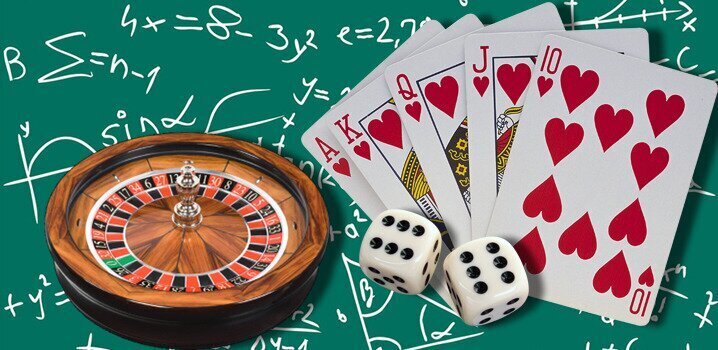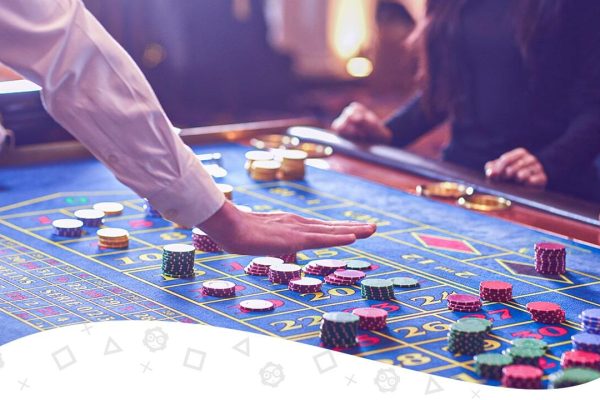Casinos have long been temples of chance, where players test their luck against the house. Yet, beneath the glitz and glamour lies a world governed by mathematics and algorithms. The very same ones that also allow for the function of online casinos with their free spins no deposit. From the spin of a roulette wheel to the shuffle of cards in blackjack, every casino game is underpinned by probabilities and odds. Understanding these mathematical concepts is crucial for players seeking knowledge in the inner workings of a casino and its many games.
Remember you need to be 18+ to gamble within the UK and please feel free to visit BeGambleAware.org for more information on how to gamble safely.
Probability and Odds: The Foundation of Casino Games
At the heart of every casino game is the concept of probability. Probability is the likelihood of a particular outcome occurring, expressed as a number between 0 and 1, where 0 indicates impossibility and 1 indicates certainty. For example, in a fair six-sided die roll, the probability of rolling a six is 1/6 because there is one favourable outcome (rolling a six) out of six possible outcomes.
Odds, on the other hand, represent the ratio of favourable outcomes to unfavourable outcomes. They can be expressed in various formats, such as fractions, decimals, or percentages. Using the example of a six-sided die, the odds of rolling a six are 1 to 5, as there is one favourable outcome out of five unfavourable outcomes.
Applying Mathematics to Popular Casino Games
- Roulette
In roulette, players bet on where a ball will land on a spinning wheel divided into numbered pockets. The wheel contains 36 numbered pockets, alternately coloured red and black, along with one or two green pockets for the zero or double zero (depends if you’re playing European or American roulette). By calculating the probability of each outcome, players can assess the fairness of the game and make informed betting decisions.
For instance, in European roulette with a single zero, the probability of the ball landing on any specific number is 1/37, while the odds are 36 to 1 against. By understanding these probabilities, players can choose bets with favourable odds, such as betting on red or black, which have a probability of approximately 18/37 or odds of close to even money.
- Blackjack
Blackjack, also known as 21, is a card game where players compete against the dealer to get a hand value as close to 21 as possible without going over. The game involves probability calculations not only for the player’s hand but also for the dealer’s hand, making it a complex interplay of mathematical strategies.
Through probability analysis, players can determine the likelihood of receiving specific cards and adjust their playing decisions accordingly. For example, knowing the probability of drawing a 10-value card (10, Jack, Queen, King) can inform decisions on whether to hit or stand. Moreover, understanding the dealer’s probabilities can guide decisions on when to take risks or play conservatively.
- Slot Machines
Slot machines, ubiquitous in casinos worldwide, may seem purely luck-based, but they are governed by mathematical algorithms known as random number generators (RNGs). These algorithms determine the outcome of each spin, ensuring fairness and randomness in the game.
By analysing the probability distribution programmed into the slot machine’s RNG, players can gain insights into the game’s payout structure. Understanding the odds of hitting winning combinations and the frequency of bonus features can help players manage their bankroll effectively and maximize their chances of winning.
Strategies for Maximizing Winnings
Armed with an understanding of the mathematical principles behind casino games, players can employ various strategies to maximize their chances of winning. Here are a few strategies commonly used by experienced players:
- Bankroll Management
One of the most crucial strategies for any casino game is effective bankroll management. Players should set a budget for their gambling activities and stick to it rigorously. By allocating a specific amount of money for each session and avoiding chasing losses, players can mitigate the risk of financial ruin and enjoy their gaming experience responsibly.
- Game Selection
Not all casino games offer the same odds or level of complexity. Savvy players often opt for games with a lower house edge, such as blackjack or certain variations of video poker, where skill and strategy can influence the outcome. By choosing games with favourable odds, players can improve their chances of winning over the long term.
- Understanding Variance
Variance refers to the degree of deviation from the expected outcome in a casino game. Games with high variance, such as slot machines with large jackpots, offer the potential for significant wins but also carry a higher risk of losing streaks. Conversely, games with low variance, such as certain types of table games, offer more consistent but smaller payouts. Understanding the variance of a game can help players adjust their playing style and manage their expectations accordingly.
- Utilizing Bonuses and Promotions
Many casinos offer bonuses and promotions to attract new players and retain existing ones. These incentives can range from welcome bonuses to free spins on slot machines. By taking advantage of these offers, players can increase their bankroll without risking additional funds. However, it’s essential to read the terms and conditions carefully to ensure that the bonuses are genuinely beneficial and not subject to overly restrictive wagering requirements.
The Power of Mathematics in Casino Games
In conclusion, mathematics is the hidden force shaping the world of casino gaming. From the spin of a roulette wheel to the flip of a card, every outcome is governed by probabilities and odds. By understanding these mathematical principles, players can make informed decisions, manage their risks, and potentially gain an edge over the house.
Moreover, for casinos themselves, mathematics is essential for designing games that are both entertaining and profitable. By carefully balancing the probabilities and payouts, casinos ensure that the odds are always tilted in their favour over the long run.
In this symbiotic relationship between mathematics and casino games, knowledge truly is power. Whether you’re a seasoned gambler or a curious novice, understanding the role of mathematics in casino games can enhance your appreciation of the games and empower you to play smarter.





